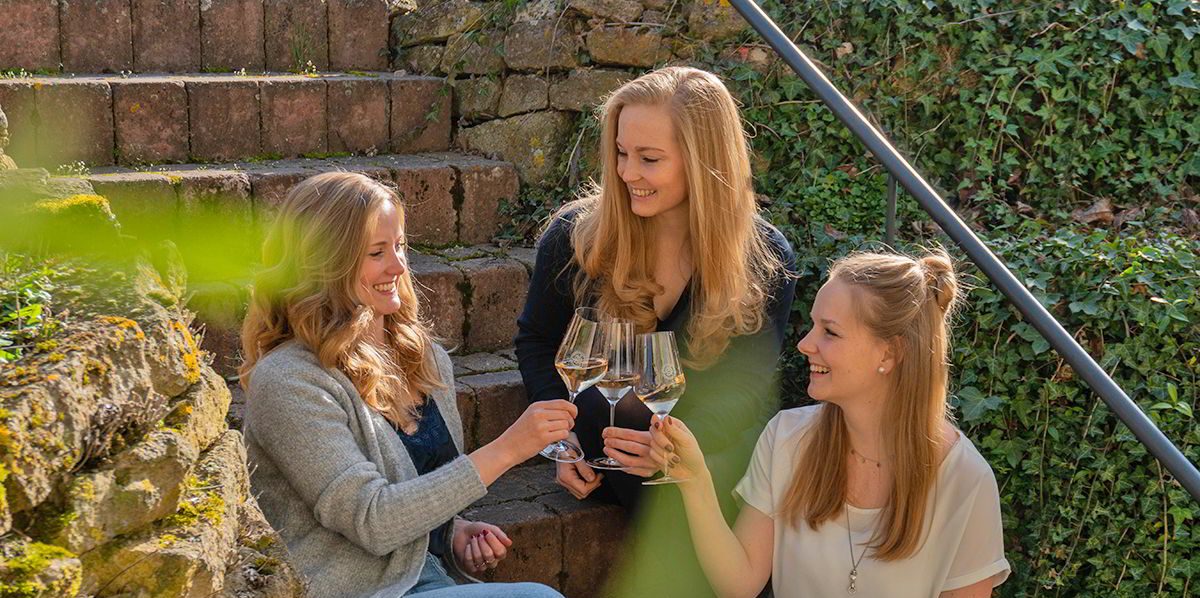Photo Credit: Weingut Gebert
Meet Anne Gebert
Estate: Weingut Gebert
Region: Rheinhessen
Focus: 34% Burgundy, 20% Riesling, 17% Silvaner, 29% Other
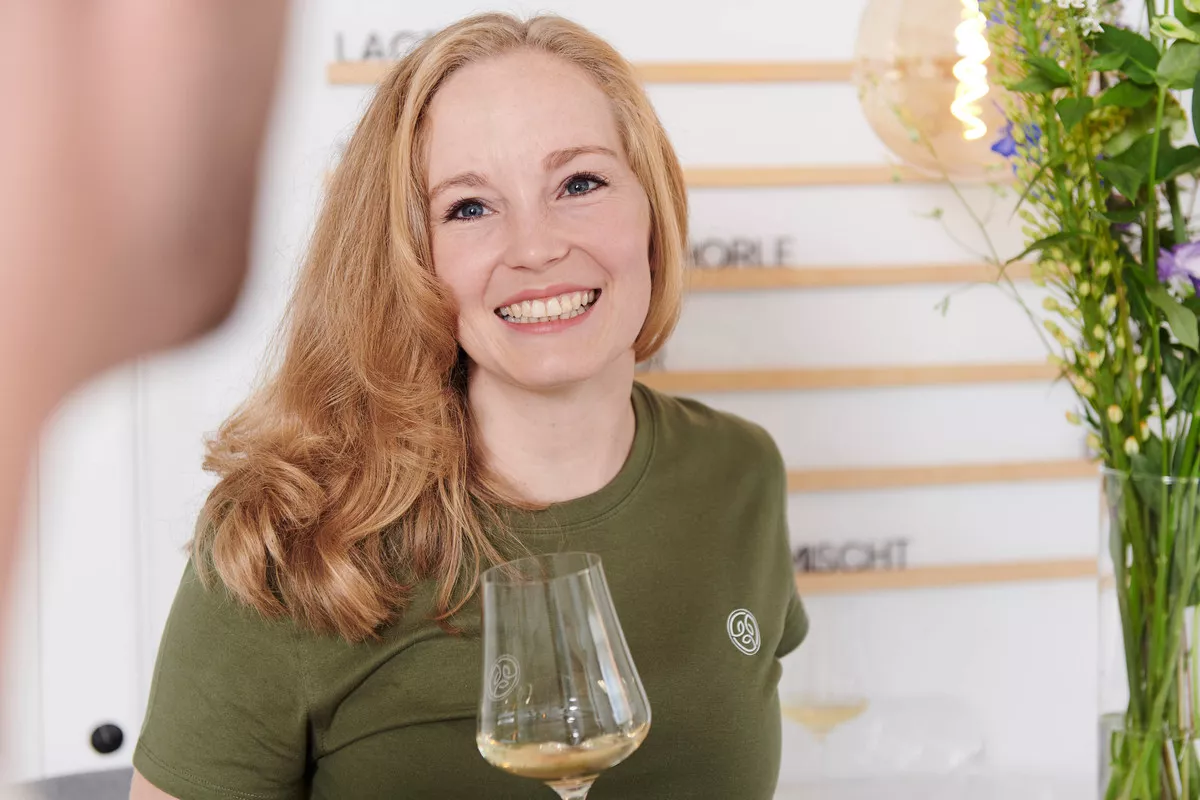
Photo Credit: Weingut Gebert
Background
Founded in 1825, Weingut Gebert has remained a family-run estate for 200 years, with each generation building on the heritage and expertise of the last. In the fifth generation, Hans-Joachim Gebert managed the property for 30 years, transitioning it from a mixed-use farm to a dedicated wine estate and laying the foundation for its modern vineyard portfolio. Since 2019, his daughter Anne has led the winery’s evolution into a dynamic, team-oriented operation. While rooted in heritage, Weingut Gebert embraces innovation and modern craftsmanship to shape the future of winemaking in Rheinhessen and beyond.
Anne works alongside a close-knit team that reflects the winery’s spirit of “real teamwork.” A true craftsman and exceptional winemaker, Paul Krahl oversees the cellar and brings a breath of fresh air to each vintage. Jan Jansen manages operations and customer relations, while Anne’s sisters, Lara and Hannah, manage the winery’s garden (the Weingarten) and host wine-focused events for consumers. Hans-Joachim remains actively involved, lending his expertise in vineyard care. Together, they carry the family tradition forward with shared purpose and fresh perspective.
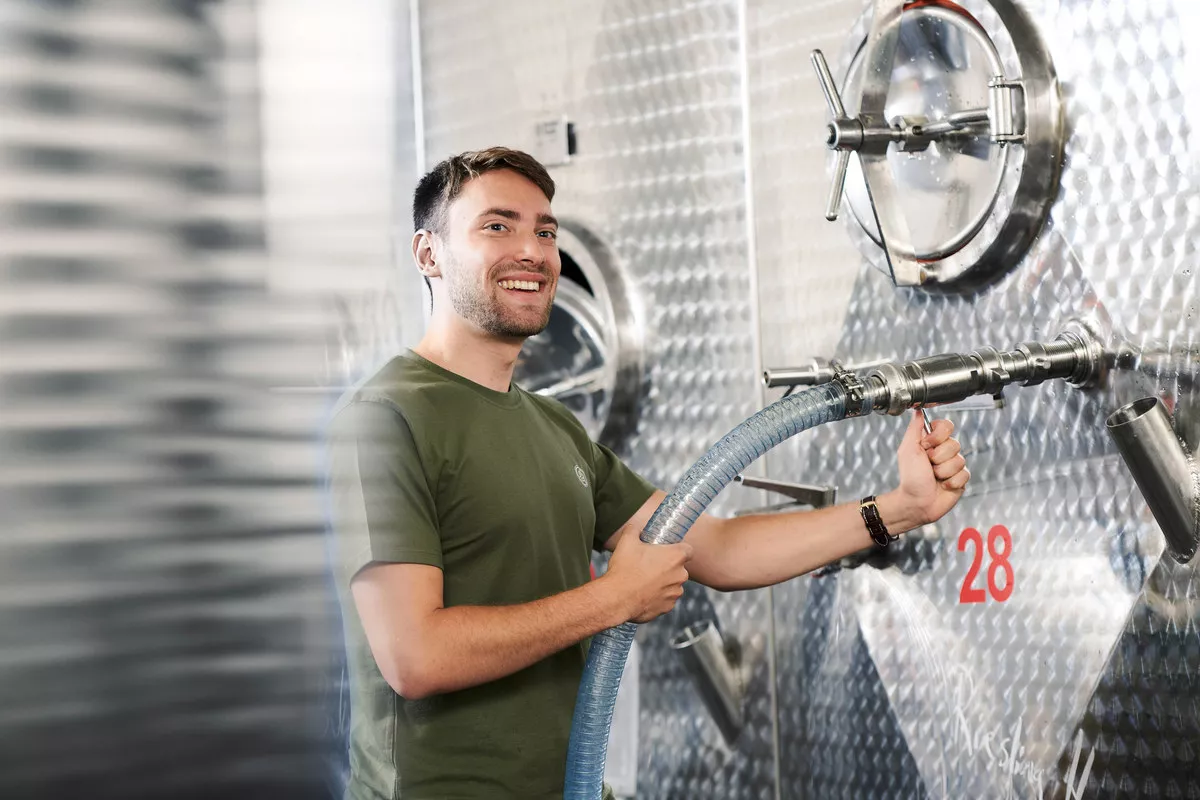
Photo Credit: Weingut Gebert
Vineyards
Weingut Gebert cultivates approximately 27 acres of vineyards in the western part of Rheinhessen, Germany’s largest wine-growing region, primarily around the village of Siefersheim. The estate’s four main vineyard sites, each with distinctive soil compositions and microclimates, contribute to the stylistic diversity of its wines:
- Goldenes Horn: The largest of the four sites, Goldenes Horn features a mix of volcanic subsoil and loess, with a combination of slopes and flatter parcels offering varied exposures. These conditions support the cultivation of full-bodied yet fruity red and rosé wines, as well as delicate, finely aromatic varieties such as Riesling, Rivaner, and Scheurebe.
- Siefersheimer Heerkretz: The most renowned of the estate’s vineyards, Heerkretz is distinguished by its rare rhyolite (porphyry) rock—a soil type that makes up only 1% of the Rheinhessen’s total area. This mineral-rich terrain produces elegant, complex wines with pronounced minerality, like Rieslings and Pinot Blancs, and is considered a cru site of exceptional character.
- Siefersheimer Martinsberg: Located on the eastern side of Siefersheim, Martinsberg features deep, nutrient-rich loess-loam soils that receive wind and sun exposure, creating ideal conditions for balanced fruit expression. The site is home to Silvaner vines up to 47 years old, whose deep roots contribute to the extraction of mineral nuances in the grapes.
- Gumbsheimer Schloßhölle: This site, near the neighboring village of Gumbsheim, is characterized by loose black earth and chalky clay marl. These soils offer optimal conditions for producing full-bodied, approachable Pinot varieties and expressive aromatic wines, like Gewürztraminer.
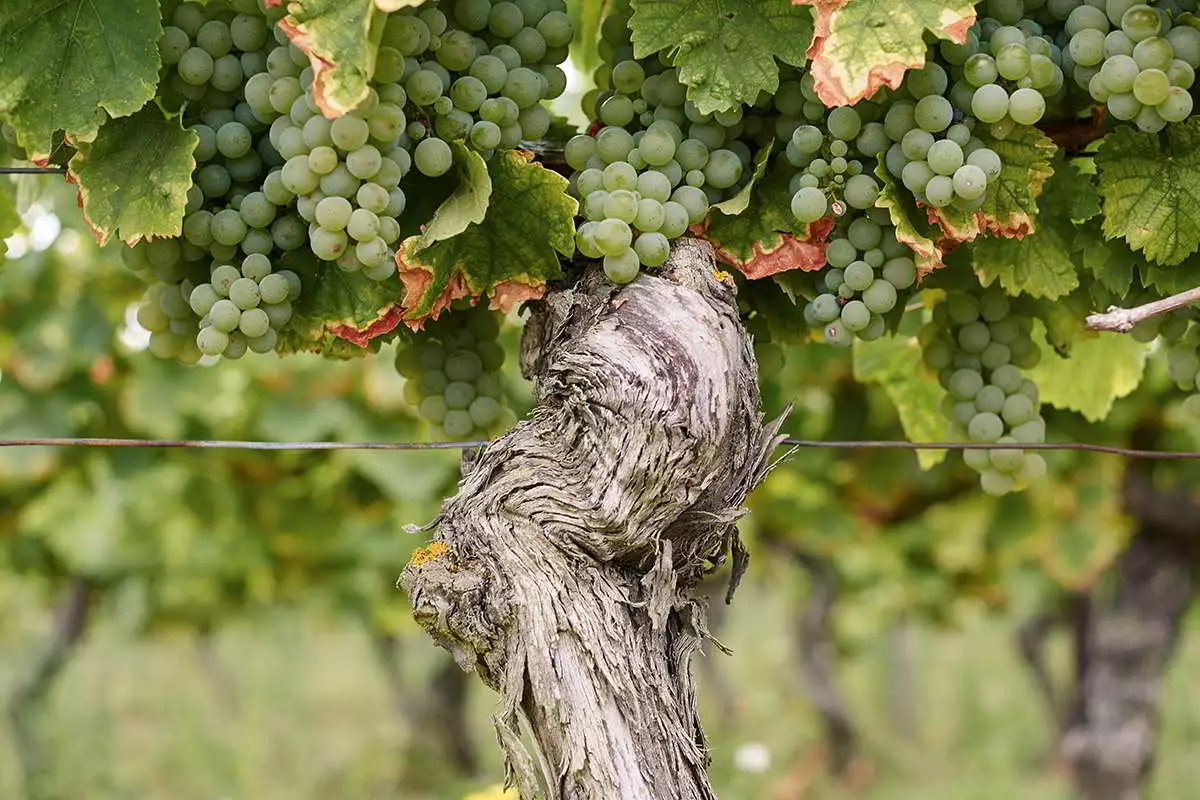
Photo Credit: Weingut Gebert
Wines
Weingut Gebert produces a diverse portfolio of wines, with a focus on dry styles. Their offerings include crisp whites, rosés, structured reds, Sekt and occasional sweet wines. Since 2018, the winery has classified its wines by grape origin using a three-tier model: estate wines (Gutswein), village wines (Ortswein), and site or single-vineyard wines (Lagenwein). This system highlights how clearly each wine reflects its terroir.
- Estate wines: These are approachable, entry-level wines made from grapes sourced across the estate’s various vineyards. They are characterized by freshness, fruit-forward aromas, and ease of enjoyment.
- Village wines: Expressive and dry single-varietal wines that reflect the character of a specific village, either Siefersheim or Gumbsheim. With delicate aromatic profiles and elegant structure, they invite exploration and pair beautifully with food.
- Site wines: These wines originate from the estate’s top single vineyards and are crafted to showcase their unique soils and microclimates. Through careful winemaking attention from pruning to bottle aging, these wines develop finely balanced structures, deep complexity, and aromatic richness.
Sustainability and ecological balance are at the core of Weingut Gebert’s winemaking philosophy. The estate minimizes the use of pesticides, avoids herbicides and artificial fertilizers, encourages biodiversity, and promotes natural vine care. Notably, they employ a herd of sheep to graze between the vines, providing natural weed control and soil enrichment. Since 2023, Weingut Gebert has been a member of Fair’n Green e.V., a certification body that supports holistic sustainability in viticulture—addressing environmental, economic, and social practices alike.
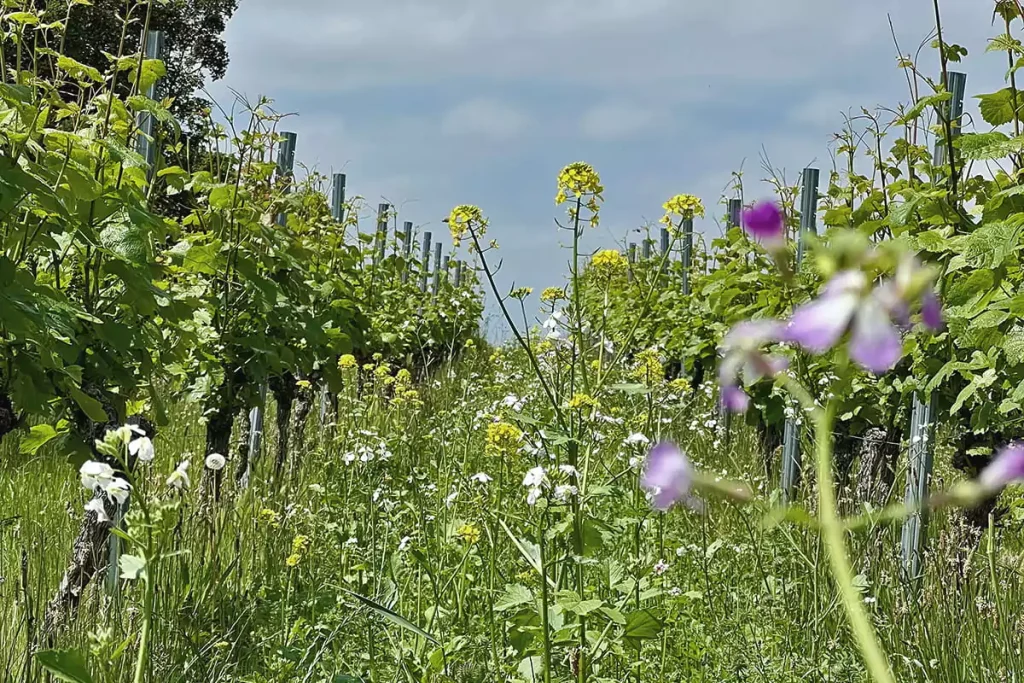
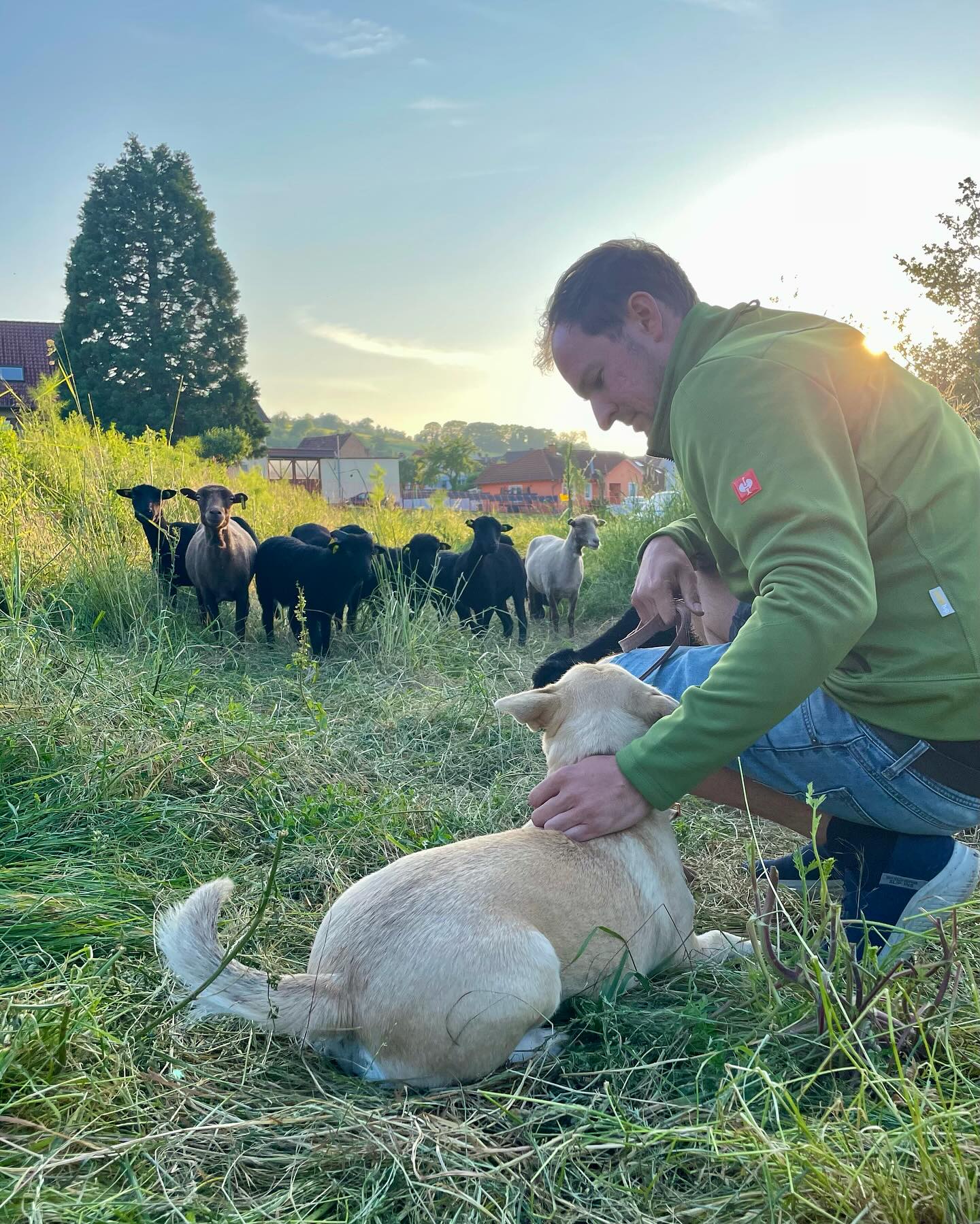
Photo Credit: Weingut Gebert
Sip at the Source
According to Weingut Gebert, wine is best enjoyed where it was grown and matured. The estate invites guests to celebrate their wines and connect with other wine lovers through a range of immersive experiences.
Each summer, guests are welcomed to the Weingarten for relaxed tastings paired with refreshments. The winery also hosts seasonal events that bring people together over great wine and local hospitality. For those who want to explore beyond the glass, guided wine hikes through the Siefersheimer Heerkretz vineyard offer stunning views and a chance to taste the landscape itself.
“Wine is an expression of joie de vivre when its aroma, taste and mouthfeel are finely attuned to each other; when it is good for you – today and tomorrow; when it is good for the people who produce it for you and good for the ecosystem in which the grapes grow for you.”
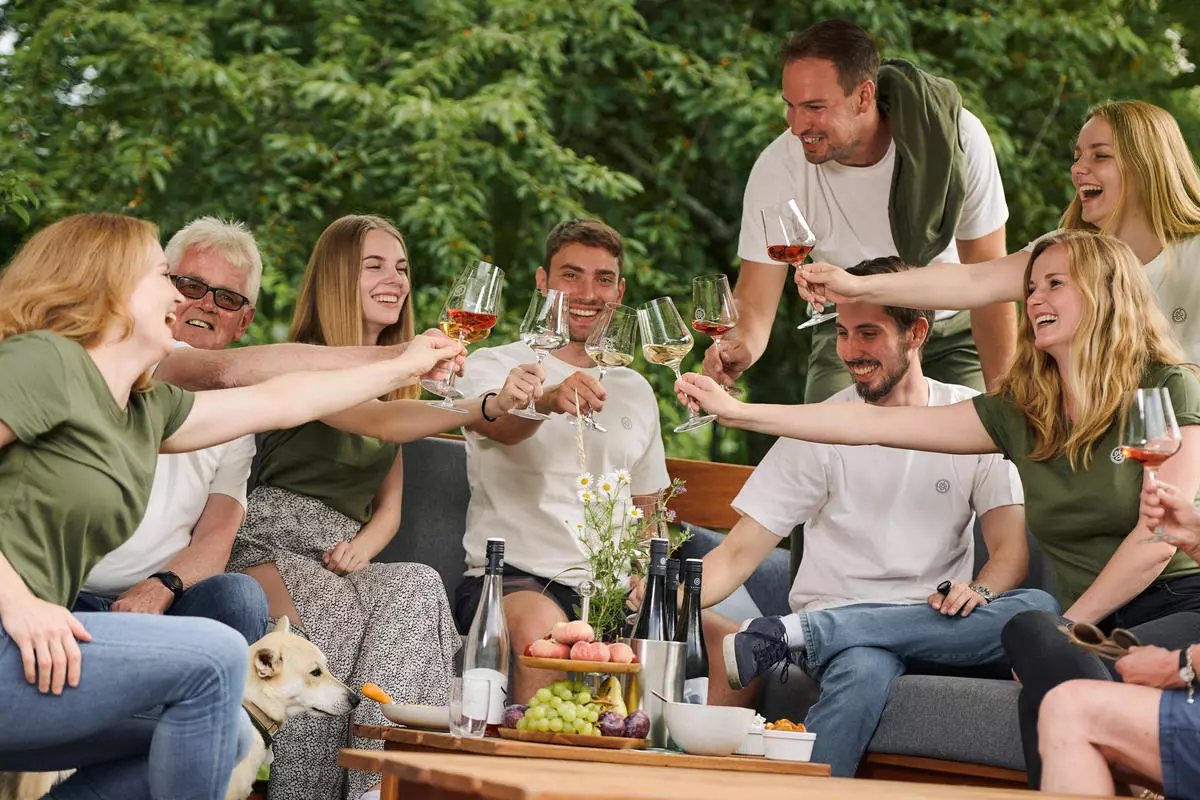
Photo Source: Weingut Gebert
Explore more from Weingut Gebert
U.S importer: Credo Imports
Thirsty for more? Follow Clink Different’s Instagram and Facebook to stay up-to-date on the latest blogs and upcoming events.
